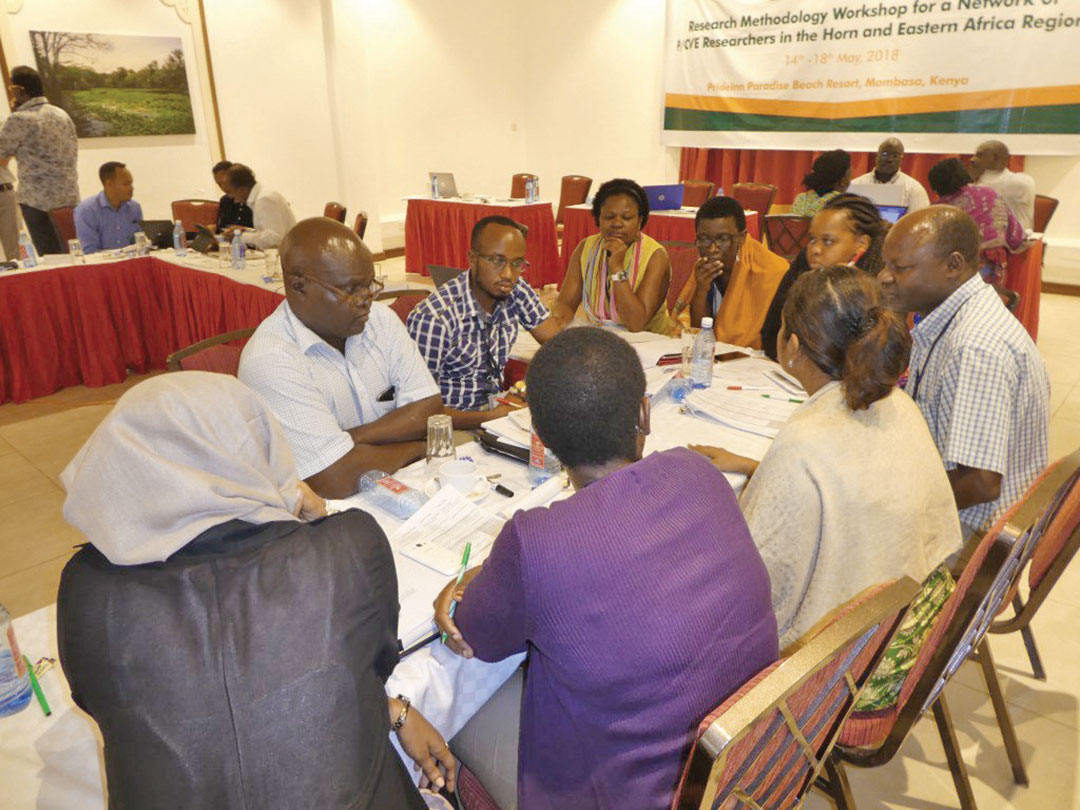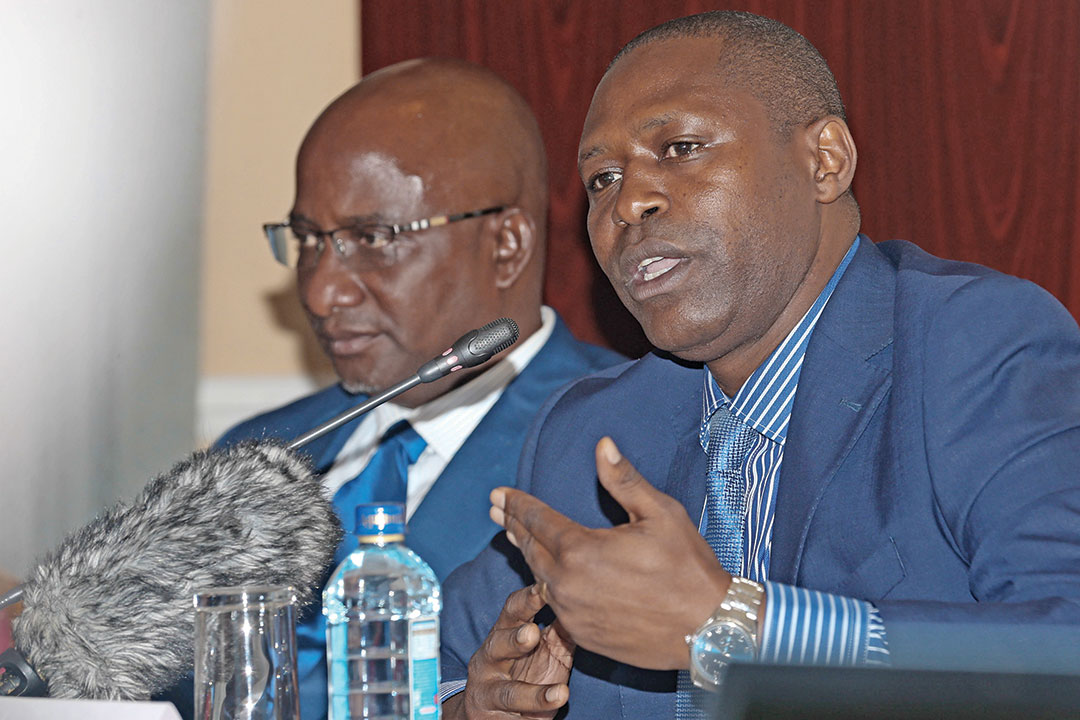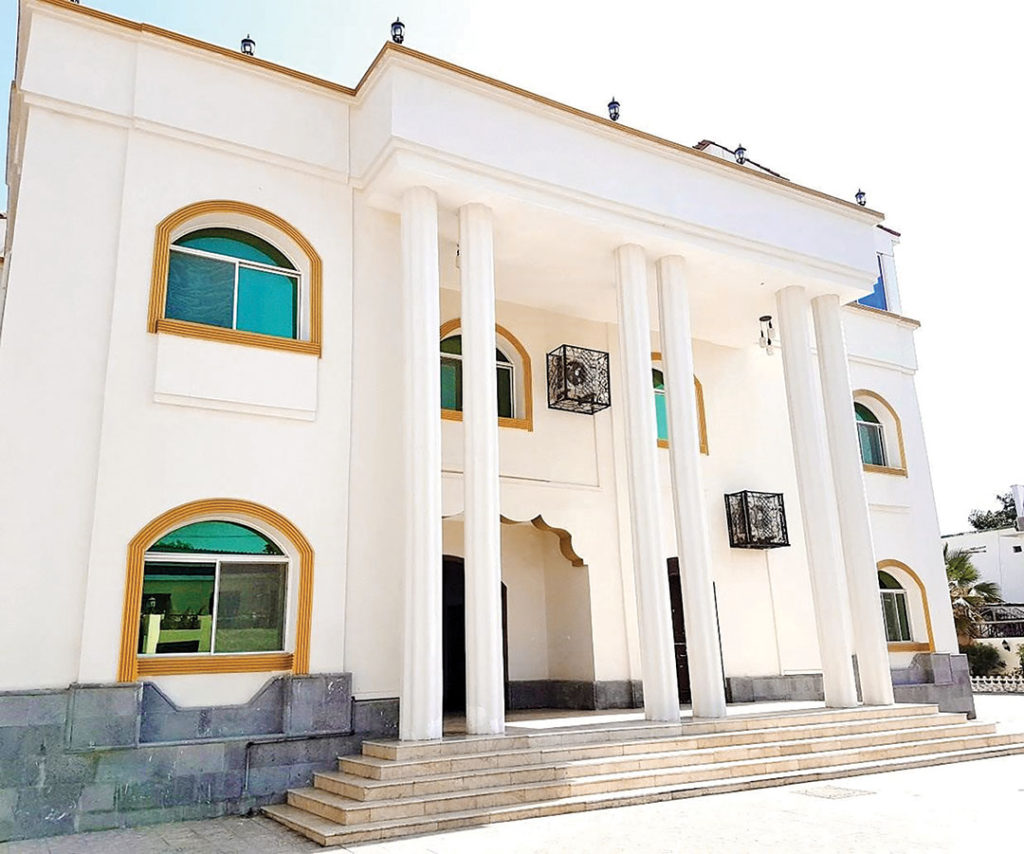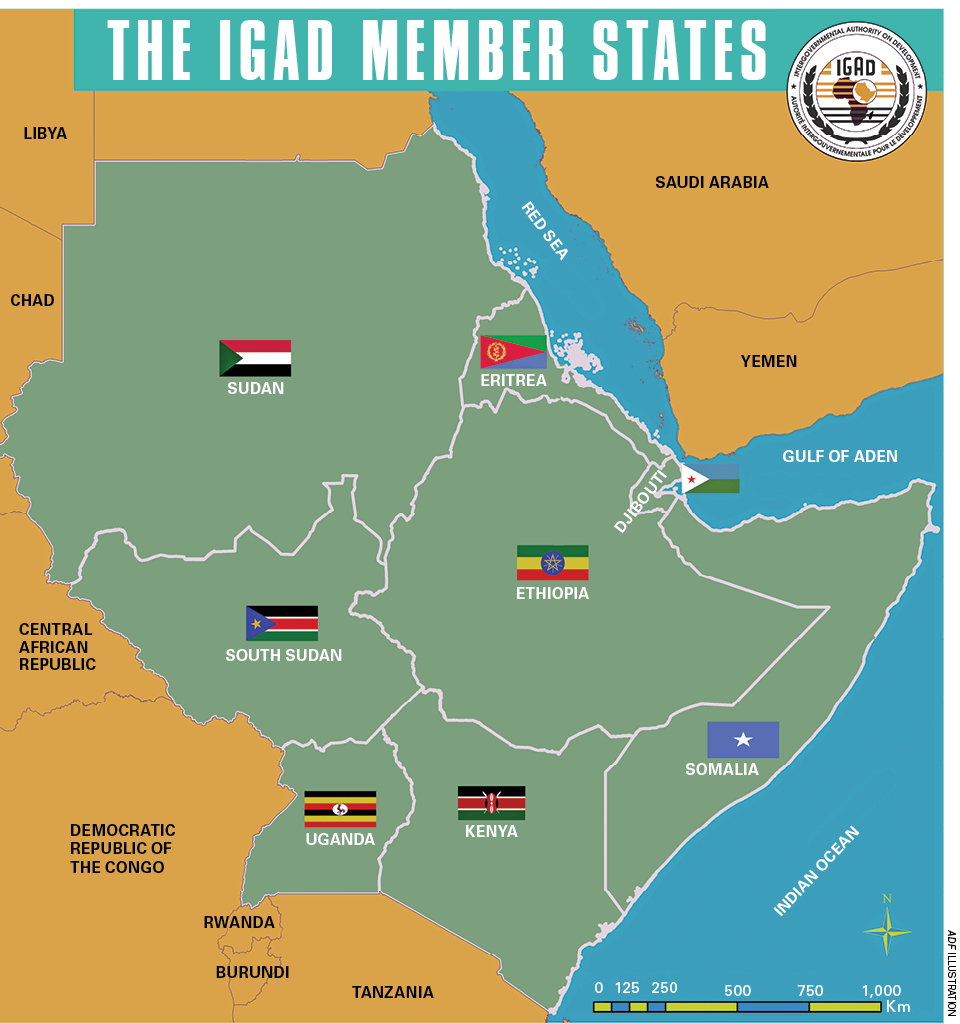An Intergovernmental Authority on Development Facility Will Use Research, Engagement to Counter Violent Extremism
ADF STAFF
East Africa stretches from the mountains of Eritrea south through the Great Rift Valley, which burrows from Djibouti across Ethiopia and into Kenya. Somalia cradles its neighbor Ethiopia at Africa’s horn. To the west, South Sudan, Sudan and Uganda complete the region that comprises the Intergovernmental Authority on Development (IGAD), one of eight African regional economic communities recognized by the African Union.
This is a region notable for its rich history and diverse geography and culture. However, in recent years, the region has been notorious for extraordinary instances of violent extremism.
Now the region is organizing to combat violent extremism with the help of the recent formation of the IGAD Center of Excellence in Preventing and Countering Violent Extremism (ICEPCVE). The center, which was conceived in 2015, made operational in October 2016 and inaugurated in a Djibouti facility in April 2018 will help build and develop “soft power” capacities, such as research, in the fight against extremism.

“Counter-terrorism and preventing and countering violent extremism are two sides of the same coin — combating violent extremism — but differ radically as strategies, the former prioritizing ‘hard’ approach the other ‘soft’ power,” according to IGAD’s “Regional Strategy for Preventing and Countering Violent Extremism.”
The center was established to share best practices and lessons learned throughout the IGAD region. State and nonstate personnel will work to strengthen coordination and strategies against violent extremism. Key to these efforts is “harnessing the grassroots knowledge of local communities and involving them as active participants,” according to the center’s mission. Efforts will include all IGAD member states and Tanzania. As of November 2018, the center had five permanent staff members and an official serving there on behalf of the French government.
The center’s mandate has five components:
- It will help build partnerships between governments, nongovernmental organizations and others.
- It will help build community resilience against violent extremism through locally led efforts.
- It will assist national governments on technical matters.
- It will help deliver training in preventing and countering violent extremism and other activities by partner organizations to broaden regional expertise.
- It will map research undertaken in the region, analyze gaps in it and commission additional research.
- Empowering and equipping effective researchers is one of the areas in which the center already has distinguished itself.
RESEARCH KEY TO CENTER’S MISSION
The center held a workshop in Mombasa, Kenya, in May 2018 to train researchers from East Africa on how best to study violent extremism. Three researchers each from Djibouti, Ethiopia, Kenya, Somalia, Uganda and Tanzania attended.
Dr. Simon K. Nyambura, director of the ICEPCVE, told ADF that ensuring well-grounded empirical research is key to informing policy on preventing and countering violent extremism. “Because the more we think we know about it, and the more we investigate, the more we discover that we know very little,” Nyambura said. “Therefore, research has become critical even for us, that we have continuously kept researching and finding the real drivers, the real factors, the trends.”

Those attending the seminar received $5,000 subgrants to fund research. That research will be compiled into a book and published. The hope is that this process will be repeated in subsequent years.
Research is emblematic of the soft power approach to countering violent extremism. Addressing the factors that lead to extremism begin with gaining a full understanding of the context in which extremism arises in communities, cultures and groups. Empowering these researchers helps IGAD build a body of knowledge regarding gender, religious, economic and historical factors in the region.
The Mombasa workshop focused on two key areas:
Participants discussed a training manual on “Trust-Based, Qualitative Field Methods,” which had been prepared before the workshop. This information will help researchers build trust with interviewees in the field and effectively present themselves and their credentials to local authorities.
Country teams identified hypotheses and research abstracts that will form the basis of two research papers from each participating country.
The papers were scheduled to be presented during the center’s first P-CVE Horn and Eastern Africa Researchers Network Conference in late 2018. The plan is to publish the papers.
The center also has participated in or sponsored other seminars since it opened. For example, in November 2018, it held a workshop on amplifying the voices of young African leaders in the fight against radicalization and violent extremism.
A REGIONAL STRATEGY
In 2018, IGAD published its “Regional Strategy for Preventing and Countering Violent Extremism,” an effort that the center was instrumental in, Nyambura said. It also is leading implementation of the strategy across the region.
The report identifies four categories of extremists that have worked to recruit and radicalize people in East Africa. They are:
International terrorist groups, such as pro-Palestinian militants in the 1960s through the 1980s, which later gave way to al-Qaida and the Islamic State in the 1990s and beyond.
Affiliates of ISIS and al-Qaida, the two major international terrorist groups.
Indigenous or homegrown terrorist groups such as al-Shabaab, which emerged in Somalia after its civil war.
Non-Islamist indigenous militant groups such as the Lord’s Resistance Army.
The “regional strategy provides the requisite framework for coordinating the responses of communities, governments and organizations to detect, deter and defeat extremist groups.”
The strategy lists three responses to violent extremism. They are counterterrorism, which makes use of “hard” security measures such as military and police forces, covert operations and the criminal justice system. Next is countering violent extremism (CVE), which generally is understood to rely on softer responses that seek to understand, prevent and address underlying causes of extremism. Finally, there is preventing violent extremism (PVE). It is closely aligned with CVE, but it stresses attempts to mitigate threats from populations already engaged in violent extremism.
The more forceful counterterrorism measures have their place in the fight against violent extremism, Nyambura said, especially when confronting groups such as Somalia-based al-Shabaab. But it is through CVE and PVE that he thinks the most progress can be made against violent extremism.
“I think we have to win people’s hearts and minds, especially for the young people, by working with them,” he said. “We must deny the extremists the fertile ground that they use to recruit and radicalize the young people.”


